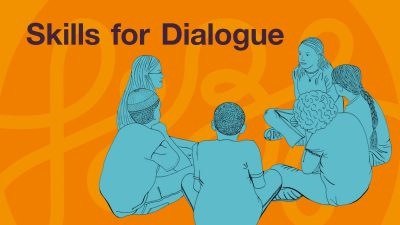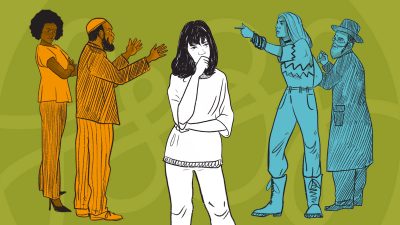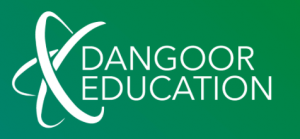Menu
Menu

Welcome to our website where you will find a suite of lesson plans with accompanying films, presentations and worksheets for KS3. Distilling 20 years of The Faith & Belief Forum’s knowledge of equipping learners with tools for safe and meaningful dialogue.



The Faith & Belief Forum is delighted to launch an extensive range of online resources perfect for KS3 RE and PSHE teachers. Detailed lesson plans with accompanying films, presentations and worksheets aimed at years 7, 8 and 9, to enable us to share our expertise and methodologies with education professionals in a scalable and sustainable way.
Our in-house team of educationalists have created these resources in collaboration with specialist RE teachers. The resources cover many learning objectives in the following subjects: RE, PSHE, RSE, Humanities and Citizenship. Each lesson plan has been mapped to the English and Welsh curriculum. The resources have been piloted by and reviewed by our expert Education Advisory Committee.
You can find below complete topic packages on:
Each package contains a film and 6 lesson plans with accompanying presentation for class and activity sheets.
Contact the F&BF education team on School@faithbeliefforum.org
FEEDBACK: Watch what teachers say about these resources on the E&L film here. We would love your feedback too! Please fill in our easy 5 min anonymous survey here.
For teachers on the School Linking Programme, please see the relevant section here.
Disclaimer: All the online resources and toolkits have been prepared for use within the Schools Programme at F&BF. All F&BF materials are owned by F&BF and should be acknowledged and attributed to F&BF. These materials cannot be used for commercial use, or for delivery beyond this Programme without the permission of F&BF.
Graphic design of lesson plans by Sam Harris.
Films by Woven Ink.
UPDATE: The Linking Network have created an assembly to get secondary school pupils to reflect on the tragic and escalating events in Ukraine in a thoughtful way. The assembly particularly focuses on the plight of refugees in Ukraine and around the world today.
The assembly will hopefully:
-Remind pupils that the lives of many people around the world can change suddenly and dramatically due to war.-Get students to reflect on the plight of refugees from Afghanistan to Ukraine.-Encourage pupils to reflect on how we can all make a difference.
This package of lessons and resources will introduce the importance of creating a ‘Safe Space’ (some teachers prefer to use ‘Shared Space’ or ‘Brave Space’ instead) with the students, exploring why it is helpful to agree on shared principles when working with a group of people to enable everyone to feel comfortable to participate fully. As a framework, creating a Safe Space allows and encourages recognition of topics and themes that might be sensitive, difficult or controversial for an individual, group, class, school or community and develops skills to navigate and address these issues in the classroom and beyond. By creating a class set of principles and exploring the principles in each lesson, the students receive the perfect introduction to enable them to go on to explore identity and controversial issues in the following packages.

YouTube link: Safe Space film
Now that a Safe Space has been set with students and the principles for dialogue explored, this package will extend their learning journey and transition to exploring their own and other’s identities to understand and celebrate difference. The film has been created to encourage exploration and discussion around the theme of identity. It is designed to be open-ended and as a centrepiece to explore the nuances, challenges and complexities that make up a person’s individual or group identity. We encourage you to pause, discuss, reflect and draw out observations through the images and interpretive narrative.
Introduction to Identity package

These lesson plans have been designed in such a way so as to focus on the development of a particular skill rather than the allegedly controversial issue itself, thus not requiring specialist knowledge from the teacher or the responsibility to guide students towards a resolution. Rather, they aim to support you in facilitating the opening up of conversations, the sharing of views and the modelling of positive dialogue.
We have highlighted various specific factors which make engagement in relationships and discussion challenging, but the main objective of each lesson is to enable your students to develop skills that enable them to overcome challenges, using the controversial issue as an example. Therefore, you can change the issue depending on a particular subject matter that your school might be wanting to address.
These include:
LP 2 Skill: Confidence – fear of engagement due to being unsure versus self-confidence
LP 3 Skill: Critical Thinking – feeling overwhelmed due to multiplicity of sometimes conflicting stances, versus critical thinking and reading;
LP 4 Skill: Emotional Intelligence – conversations being shut down / difficult to handle due to strong emotions being evoked, versus emotional literacy and empathy
LP 5 Skill: Acceptance (including acceptance of difference) – coming across fundamental differences which pose as stumbling blocks, versus letting go of the need to ‘win’ or agree and resolving to learn something anyway
LP 6 Skill: Flexibility – people becoming polarised over issues and arguments lacking nuance due to not wanting to lose identity, versus resisting ‘camp mentality’ and always looking to understand influences, critique own side and keep an open mind about other arguments and the overall complexity of issues

YouTube link: Controversial Issues FILM
Skill: Confidence
Skill: Critical Thinking
Skill: Emotional Intelligence
Skill: Acceptance (including acceptance of difference)
Skill: Flexibility
